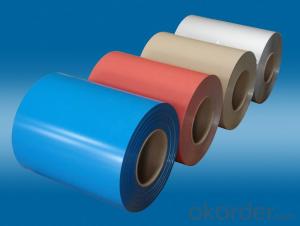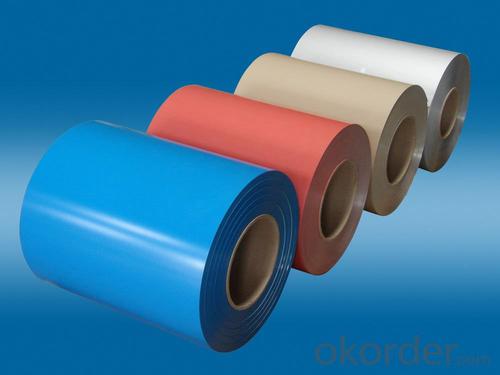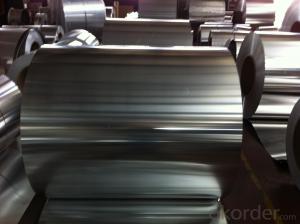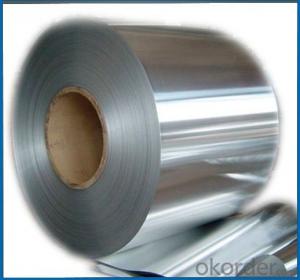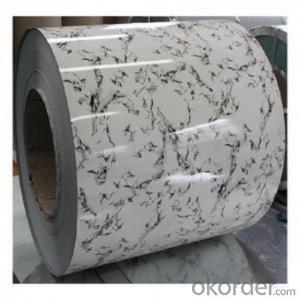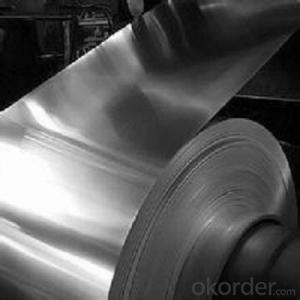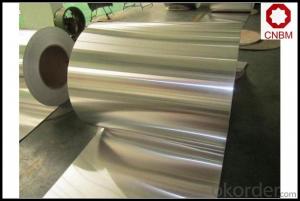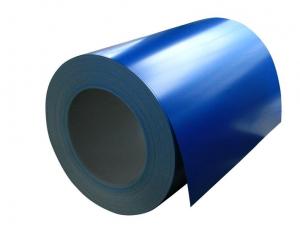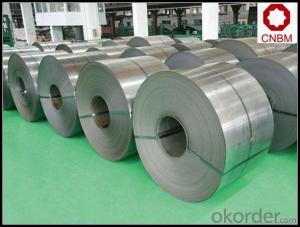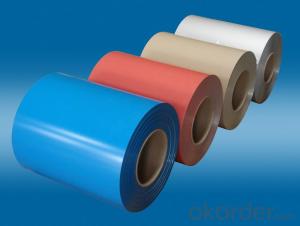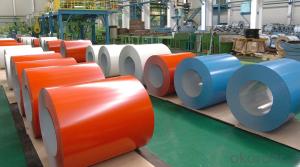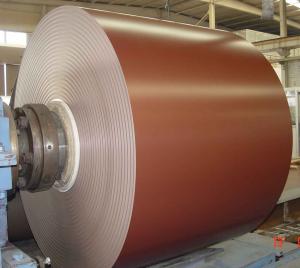3003H32 Aluminum Coil 0.05 X 102 - Aluminium Prepainting Polyester Coated Coil
- Loading Port:
- Shanghai
- Payment Terms:
- TT OR LC
- Min Order Qty:
- 8 m.t.
- Supply Capability:
- 2000 m.t./month
OKorder Service Pledge
OKorder Financial Service
You Might Also Like
Specification
Structure of Aluminium Prepainting Polyester Coated coil:
Coated aluminum coil/sheet are of a wide range of colors, which gives wonderful appearance no matter in residential and commercial constructions of great exhibition centers.
The coated aluminum coil/sheet have been widely used in the fields of construction and decoration( garage doors, ceiling etc.), electronic appliances, lighting decoration, air-condition air pipes, sandwich panels and drainages etc.
Main Features of Aluminium Prepainting Polyester Coated coil:
1) High flexibility
2) Impact resistance
3) Excellent weather-proof durability
4) Anti-ultraviolet
5) High erosion resist
Images of the Aluminium Prepainting Polyester Coated coil:
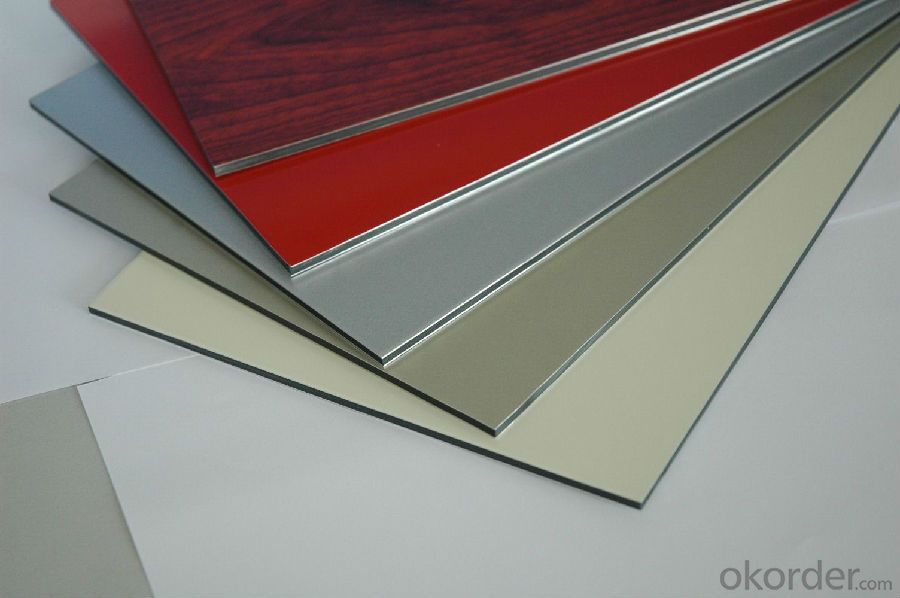
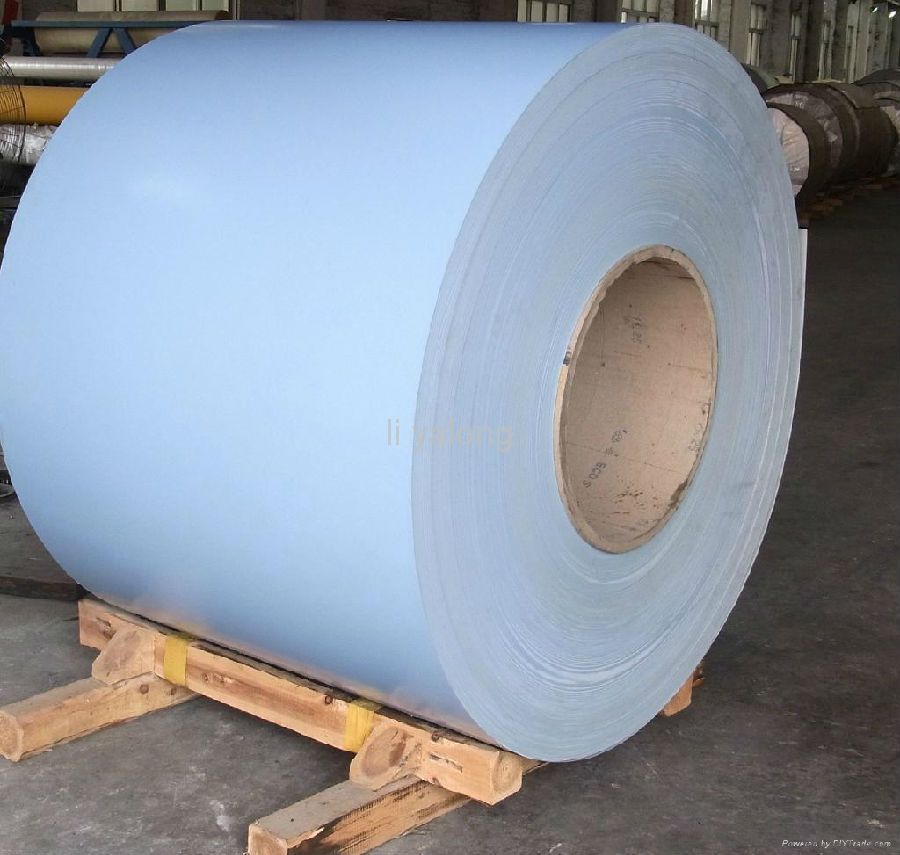
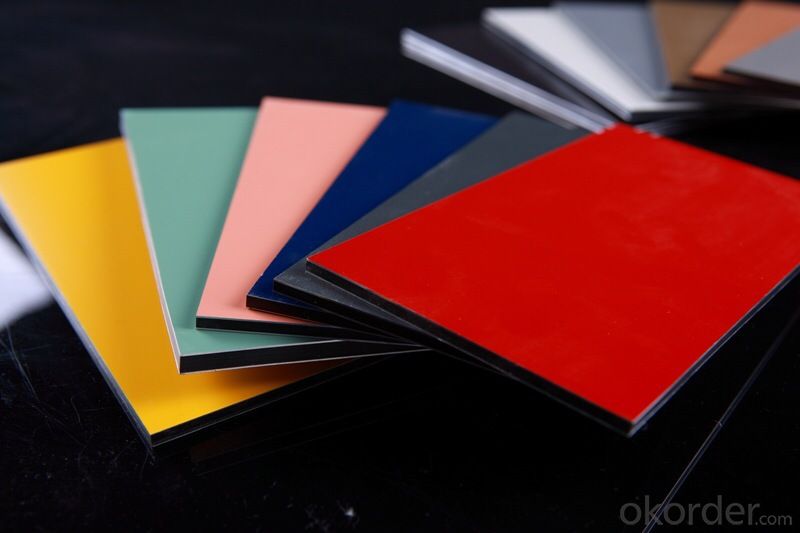
Aluminium Prepainting Polyester Coated coil Specification:
Alloy | A1100,A3003,A1050,A8011 etc |
Temper | H16,H18,H24 |
Thickness | From 0.024mm to 1.2mm |
Width | Standard width:1240mm |
Special width:1300mm,1520mm,1570mm,1595mm | |
Diameter | Standard dia:1200mm |
Interior dia:150mm,405mm,505mm | |
Weight | 2.5 T/coil,3.0 T/coil |
Coating | PE, PVDF, AC |
Surface | Embossed, mill finish, coated |
Color | AS to code RAL |
Gloss | 10-90%(EN ISO-2813:1994) |
Coating Thickness | PE: more than 18 micron |
PVDF: more than 25 micron | |
Coating Hardness (pencil resistance) | More than 2h |
Coating adhesion | 5J(EN ISO-2409:1994) |
Impact Resistance | No peeling or cracking(50 kg/cm,ASTMD-2794:1993) |
Flexibility (T-bend) | 2T |
MEK resistance | More than 100 |
FAQ Aluminium Prepainting Polyester Coated coil:
a.What is monthly capacity
---CNBM is one stated own company and our monthly capacity is about 2000tons.
b. Now which countries do you export your goods?
---Now we export to South East Asia,Africa, North America,South America ect.
- Q: Can aluminum coils be welded?
- Yes, aluminum coils can be welded. Aluminum is a highly weldable material and is commonly used in various industries for its lightweight and corrosion-resistant properties. There are several welding methods that can be used to join aluminum coils, including TIG (tungsten inert gas) welding, MIG (metal inert gas) welding, and laser welding. However, it is important to note that welding aluminum can be more challenging compared to other metals due to its high thermal conductivity and low melting point. Therefore, proper welding techniques and equipment, such as using specialized aluminum welding wire and shielding gases, are necessary to ensure successful and high-quality welds.
- Q: How are aluminum coils protected against UV exposure during storage?
- Aluminum coils are typically protected against UV exposure during storage through the application of a protective coating or the use of UV-resistant packaging materials. Aluminum coils are highly susceptible to UV degradation, which can result in discoloration, surface damage, and reduced performance. Therefore, manufacturers and distributors take special precautions to ensure that the coils are shielded from harmful UV rays. One common method is the application of a protective coating on the surface of the coils. This coating acts as a barrier between the aluminum material and UV radiation, preventing direct exposure. The coating is typically a specialized paint or lacquer that contains UV inhibitors, which absorb or reflect UV rays, thereby minimizing damage to the coils. This protective layer also helps to preserve the aesthetic appearance of the coils and extend their lifespan. In addition to coatings, aluminum coils can also be stored in UV-resistant packaging materials. These materials are designed to block or absorb UV radiation, effectively creating a shield around the coils. Common UV-resistant packaging materials include polyethylene films, which are specifically formulated to provide excellent UV protection. By storing the coils in such packaging, they are safeguarded against direct sunlight and other sources of UV radiation. It is worth noting that UV protection measures are particularly crucial during long-term storage or transportation, as the coils may be exposed to UV rays for extended periods. By implementing these protective measures, manufacturers and distributors ensure that the aluminum coils maintain their quality and performance, even when stored in environments with high UV exposure.
- Q: What is the typical width tolerance for aluminum coils?
- Depending on the specific industry and application, the width tolerance for aluminum coils can vary. Typically, the width tolerance for aluminum coils is around ±0.005 to ±0.010 inches. This means that the actual width of the aluminum coil can vary within this range from the specified target width. It is important to understand that these tolerances can be stricter or more lenient depending on the specific requirements of the customer or application. Furthermore, aluminum coil manufacturers often provide different width tolerances for different grades or thicknesses of aluminum coils. Therefore, it is essential to refer to the manufacturer's specifications or guidelines for accurate information on the width tolerance for a particular aluminum coil.
- Q: This question asks whether aluminum coils are produced using recycled materials.
- <p>Yes, aluminum coils can be made from recycled materials. Recycling aluminum is a common practice because it conserves resources and energy. Recycled aluminum, also known as secondary aluminum, is processed from various waste materials such as used beverage cans, automotive parts, and construction materials. The recycling process involves melting the scrap aluminum, which requires significantly less energy compared to producing aluminum from raw materials. This makes the production of aluminum coils from recycled materials more sustainable and environmentally friendly.</p>
- Q: What are the common surface treatments applied to aluminum coils?
- To enhance the durability, appearance, and resistance to corrosion of aluminum coils, various common surface treatments can be applied. Anodizing is one such treatment, involving the creation of an oxide layer through an electrochemical process. This not only protects against corrosion but also allows for the use of different colors and finishes. Painting or coating is another popular treatment option. Aluminum coils can be painted in a wide array of colors and coatings, providing extra protection against corrosion and improving their visual appeal. These coatings can be applied using methods like powder coating or liquid spray, offering varying levels of durability and resistance to environmental factors. Laminating is a process where a protective film or layer is added to the surface of aluminum coils. This film enhances resistance against scratches, abrasions, and UV rays, making the coated coil suitable for outdoor applications. Embossing or texturing is another commonly used surface treatment for aluminum coils. This involves creating patterns, designs, or textures on the surface, enhancing visual appeal and providing additional structural strength and grip. In conclusion, the selection of a surface treatment for aluminum coils depends on specific requirements, including desired appearance, durability, and environmental factors. It is important to consider factors like corrosion resistance, weatherability, and aesthetics when choosing the appropriate treatment.
- Q: Is it possible to use aluminum coil for creating a sculpture?
- <p>Yes, you can use aluminum coil to make a sculpture. Aluminum is a versatile material known for its strength, lightweight, and malleability, which makes it suitable for sculpting. It can be bent, twisted, and shaped into various forms. When working with aluminum coil, you can use tools like pliers, wire cutters, and a metal bender to manipulate the coil into the desired sculpture shape. Ensure you take safety precautions, such as wearing gloves and eye protection, due to the sharp edges and the risk of injury from handling metal.</p>
- Q: Can aluminum coils be used for window frames?
- Yes, aluminum coils can be used for window frames. Aluminum is a popular choice for window frames due to its lightweight, durable, and corrosion-resistant properties. It is also easily customizable and can be painted or anodized to achieve different aesthetics.
- Q: What are the potential applications of colored aluminum coils?
- Colored aluminum coils have a wide range of potential applications across various industries. One of the main uses is in the construction sector, where colored coils can be used for both functional and aesthetic purposes. They can be applied as roofing material, siding, or decorative elements on buildings, providing protection against weather conditions while also enhancing the visual appeal of the structure. Another potential application is in the automotive industry, where colored aluminum coils can be used for manufacturing car body panels. The vibrant colors and durability of the material make it an attractive option for creating stylish and long-lasting exteriors for vehicles. Colored aluminum coils also find application in the electronics and electrical industries. They can be used to create casings for electronic devices, such as smartphones, tablets, and laptops, adding a visually appealing touch to these gadgets. Additionally, the lightweight nature of aluminum makes it a suitable choice for heat sinks and other cooling components in electronic devices. In the packaging industry, colored aluminum coils can be utilized for creating eye-catching packaging materials for various products. The vibrant colors and sleek appearance of aluminum can help to enhance the shelf appeal of consumer goods, attracting potential buyers. Furthermore, colored aluminum coils can be utilized in the furniture industry for creating modern and stylish furniture pieces. The versatility of aluminum allows for the production of unique designs and shapes, adding a contemporary touch to interior spaces. Lastly, colored aluminum coils can be employed in the signage and advertising industry. They can be used for creating custom signage, billboards, and promotional displays with vibrant and long-lasting colors, making them an effective marketing tool. Overall, the potential applications of colored aluminum coils are vast and diverse, spanning across industries such as construction, automotive, electronics, packaging, furniture, signage, and advertising. The durability, lightweight nature, and aesthetic appeal of colored aluminum coils make them a versatile material for a wide range of purposes.
- Q: What are the different coil handling equipment options for aluminum coils?
- Some different coil handling equipment options for aluminum coils include coil lifters, coil tilters, coil cars, and coil upenders. These equipment options are designed to safely handle and transport aluminum coils in various industrial applications.
- Q: What are the common international standards and certifications for aluminum coils?
- Quality and compliance with industry requirements in aluminum coils are ensured through several common international standards and certifications. These include the following: 1. The International Organization for Standardization (ISO) has a globally recognized standard, ISO 9001, which focuses on quality management systems. This standard ensures that manufacturers have implemented effective quality control processes throughout their production and supply chain, resulting in consistent and reliable aluminum coils. 2. The American Society for Testing and Materials (ASTM) develops and publishes technical standards for various materials, including aluminum coils. One commonly referenced standard is ASTM B209, which covers the general requirements for flat-rolled aluminum products, including aluminum and aluminum-alloy sheets and plates. 3. European Norms (EN) have established EN 485, a European standard that specifies the mechanical properties, dimensions, and tolerances of aluminum and aluminum alloys. This standard ensures that aluminum coils manufactured in Europe comply with the specified quality and performance requirements. 4. The Japan Industrial Standards (JIS) committee has developed JIS H 4000, a set of standards for aluminum and aluminum alloys. JIS H 4000 covers the chemical composition, mechanical properties, and dimensions of aluminum coils, ensuring their suitability for various applications. 5. The Aluminium Stewardship Initiative (ASI) Certification is a global initiative that promotes responsible production, sourcing, and stewardship of aluminum. This certification ensures that aluminum coil manufacturers adhere to strict environmental, social, and governance standards, including responsible sourcing of raw materials and sustainable production practices. 6. The United States Aluminum Association offers certification programs, such as the Aluminum Transportation Group (ATG) Certification, which ensures that aluminum coils meet the industry's specific requirements for automotive, aerospace, and other transportation applications. These standards and certifications provide customers with assurance that the aluminum coils they purchase meet the necessary quality, performance, and sustainability standards. It is crucial for manufacturers and suppliers to adhere to these international standards to gain credibility and maintain the trust of their customers in the global market.
Send your message to us
3003H32 Aluminum Coil 0.05 X 102 - Aluminium Prepainting Polyester Coated Coil
- Loading Port:
- Shanghai
- Payment Terms:
- TT OR LC
- Min Order Qty:
- 8 m.t.
- Supply Capability:
- 2000 m.t./month
OKorder Service Pledge
OKorder Financial Service
Similar products
Hot products
Hot Searches
Related keywords
